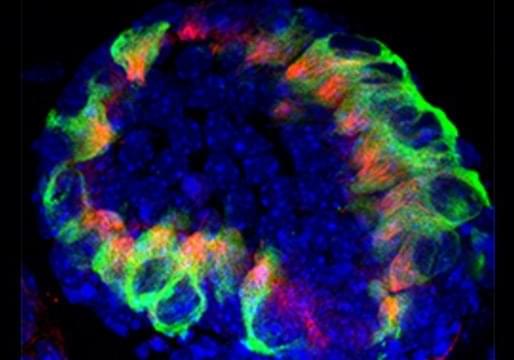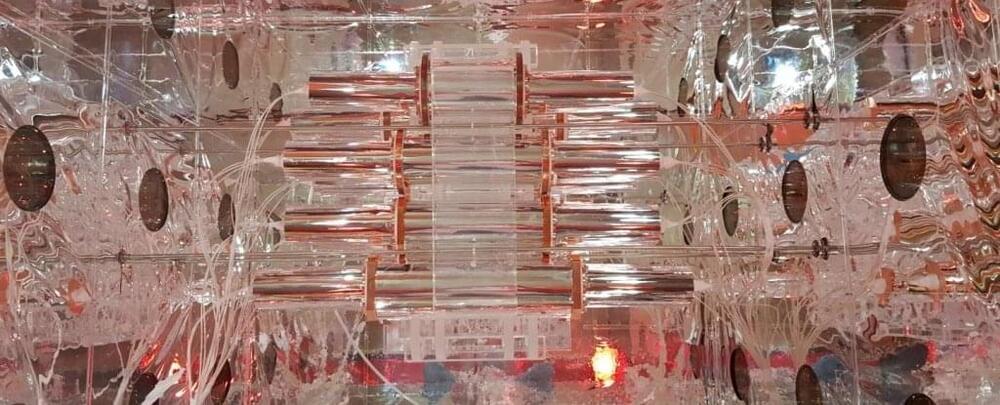Sila’s novel anode materials packed far more energy into a new Whoop fitness wearable. The company hopes to do the same soon for electric vehicles.



This magnifying glass was used to sharpen X-ray images for the first time using NASA
Established in 1,958 the National Aeronautics and Space Administration (NASA) is an independent agency of the United States Federal Government that succeeded the National Advisory Committee for Aeronautics (NACA). It is responsible for the civilian space program, as well as aeronautics and aerospace research. It’s vision is “To discover and expand knowledge for the benefit of humanity.”

TEPCO has been repeatedly criticized for coverups and delayed disclosures of problems at the plant. In February, it said two seismometers at one reactor had remained broken since last year and failed to collect data during a powerful earthquake.
TOKYO (AP) — Officials at Japan’s wrecked Fukushima nuclear power plant have acknowledged they neglected to investigate the cause of faulty exhaust filters that are key to preventing radioactive pollution, after being forced to replace them twice.
Representatives of the operator, Tokyo Electric Power Company Holdings, made the revelation Monday during a regular review of the Fukushima Daiichi plant at a meeting with Japanese regulatory authorities. Three reactors at the plant melted following a massive earthquake and tsunami in 2011.
The filters are designed to prevent particles from escaping into the air from a contaminated water treatment system — called Advanced Liquid Processing System — that removes selected radioactive isotopes in the water to below legal limits.

A research team from Nanjing University has used cochlear organoids to identify drugs that can promote the regeneration of hair cells. The study, published in Stem Cell Reports, also identifies a signaling pathway as a potential target for hearing restoration.
Hearing is a complex multistep process that allows us to detect sound and involves three key parts of the ear – the outer, middle and inner ear. Sound waves are collected by the pinna of the outer ear and are funneled into the ear canal until they meet the ear drum (tympanic membrane), causing it to vibrate.
The resulting vibrations are transmitted to the ossicles – comprising a chain of three small bones called malleus, incus and stape – located within the middle ear. Movement of the bones transmits the sound vibrations to the inner ear, sending a signal to the cochlea (a hollow spiraling structure filled with fluid). Vibrations cause the fluid within the cochlea to ripple, forming waves that stimulate the movement of hair cells positioned on the top of the basilar membrane that separates the two fluid-filled chambers running along the cochlea.
The Inspiration4 crew members have never been to space. They’ve only trained for five months. Their spaceship has a new glass dome for the views.

The spacecraft will provide fast transport between Earth and the moon—and beyond.
Picture this: World War III is just hours away. In the cold vastness of space, enemy robotic spacecraft are slowly adjusting their orbits and preparing to launch a surprise attack on the U.S.’s fleet of satellites. The uncrewed craft, with robotic arms strong enough to disable a satellite, are creeping up on American spacecraft, about to deal a knockout blow to the U.S. military.
But down on Earth, U.S. Space Force guardians have been keeping track of the assassin craft, knowing that in order to present as low a profile target as possible, they have just enough fuel for one attack. At the last minute, after the enemy satellites have committed to attack, the command activates the nuclear thermal propulsion (NTP) engines on the American satellites, quickly boosting them into a higher orbit and safely out of range.

Of all the different dark matter detectors in the world, only one has consistently come up with a positive signal. The results of DAMA experiment in Italy are hotly debated — and now two experiments seeking to verify it using the same materials have returned conflicting results.
ANAIS, a dark matter detector run by the University of Zaragoza at the Canfranc Underground Laboratory in Spain, has delivered results that seem to contradict DAMA’s.
But COSINE-100, run by a collaboration between the Korea Invisible Mass Search and Yale University at the Yangyang Underground Laboratory in South Korea, has now produced new output. These results are similar to what ANAIS’ threw up — but also a little closer to the results DAMA has produced over the last 20 years.

Of all the different dark matter detectors in the world, only one has consistently come up with a positive signal. The results of DAMA experiment in Italy are hotly debated — and now two experiments seeking to verify it using the same materials have returned conflicting results.
ANAIS, a dark matter detector run by the University of Zaragoza at the Canfranc Underground Laboratory in Spain, has delivered results that seem to contradict DAMA’s.
But COSINE-100, run by a collaboration between the Korea Invisible Mass Search and Yale University at the Yangyang Underground Laboratory in South Korea, has now produced new output. These results are similar to what ANAIS’ threw up — but also a little closer to the results DAMA has produced over the last 20 years.